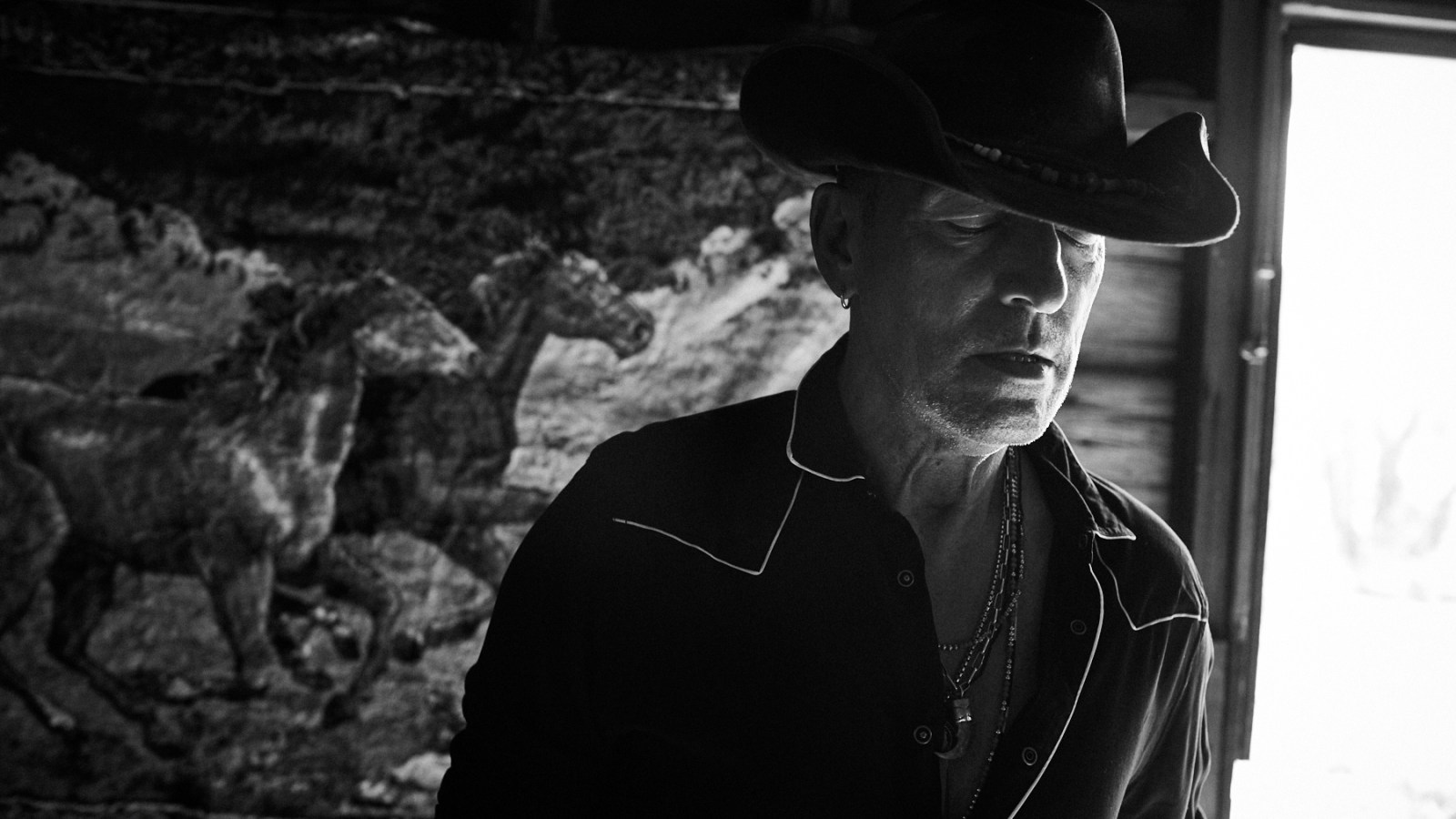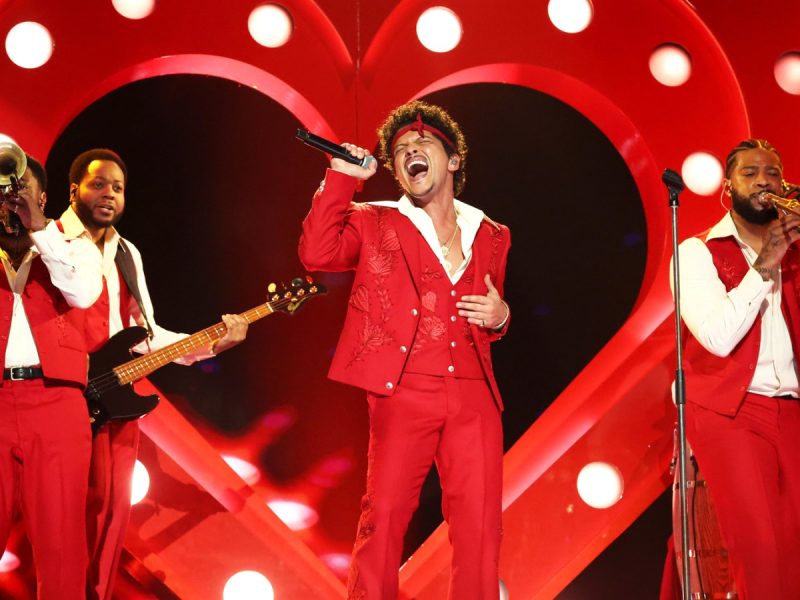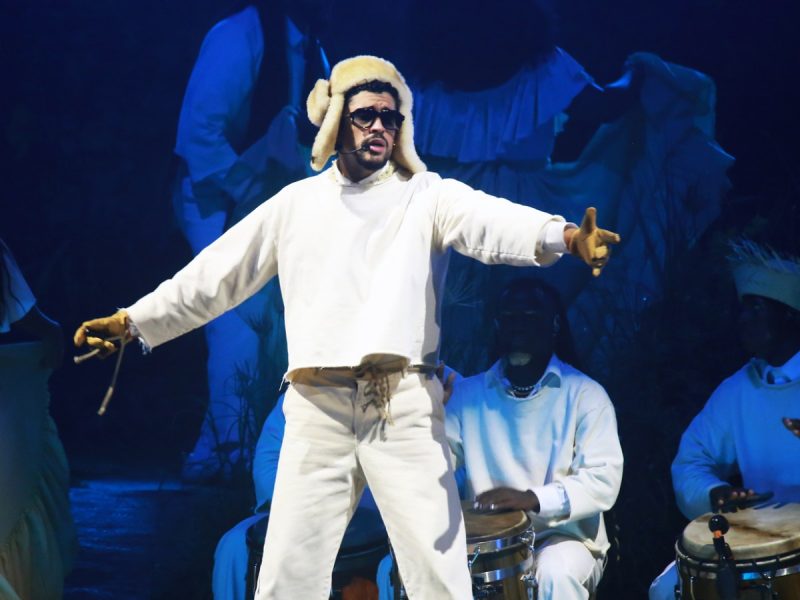With 83 songs spanning seven previously unreleased albums, Springsteen’s new archival set is a lot of take in. Here’s a guide to the best moments
In 1992, Bruce Springsteen released two albums on the same day. Thirty-three years later, he’s topped himself — and every other artist in the history of recorded music — by dropping no fewer than seven unheard albums simultaneously in one boxed set. The collection, Tracks II: The Lost Albums, is a reminder that Springsteen’s music can go far beyond the E Street Band’s stadium rock, with sounds ranging from mid-fi proto-bedroom-pop to Great American Songbook style balladry to early-Nineties drum-loop experimentation. It may take years to fully absorb the 83 songs here, but these are some of our favorites so far. (To hear our Rolling Stone Music Now podcast episode on Tracks II, go here for the podcast provider of your choice, listen on Apple Podcasts or Spotify, or just press play below.)
-
‘Unsatisfied Heart’


Image Credit: Aaron Rapoport/Corbis/Getty Images In addition to weirdly anticipating the plot of A History of Violence, this noir-ish tale of a man haunted by his past cuts close to the core of the personal issues Springsteen was grappling with in 1983. It stands alongside “Stolen Car” and “Cautious Man” in its unsparing depiction of a man in existential crisis, with the chorus posing an unanswerable question: “Can you live with an unsatisfied heart?” (“Fugitive’s Dream,” presented in two versions on the same album, tells the same story, with some of the same lyrics.) Newly in therapy, Springsteen was finally facing the darkness of his childhood, even as he spent his days recording songs that often resembled a more fleshed-out version of what he’d released on Nebraska the year before. In essence, Springsteen had to think about his entire life, Dewey Cox-style, before he could allow himself to release the big rock anthems he’d already recorded for Born in the U.S.A..
-
‘Farewell Party’


Image Credit: Frans Schellekens/Redferns/Getty Images Near the end of the recording process for the album now known as The Streets of Philadelphia Sessions, Springsteen called guitarist Shane Fontayne, drummer Zachary Alford, and bassist Tommy Simms, all veterans from his 1992-93 tour, to his home studio in Los Angeles. The album was originally built entirely on drum loops and Springsteen’s solo instrumentation, but “he was looking for another element,” Fontayne told Rolling Stone in 2020. “Farewell Party,” the tale of a couple realizing their story is coming to an end, is one of the tracks that lose their drum-loop origins entirely in favor of a full-band sound. “Don’t we all dream of a life somewhere,” Springsteen sings. “Untouched by our failures?” In an unpublished segment from Springsteen’s recent Rolling Stone interview, he said the album was originally called The Streets of Philadelphia Sessions: The Farewell Party. “I should have kept that title,” he said. “And that song is the kind of love song that I write, a doomed one.”
-
‘Under A Big Sky’


Image Credit: Michel Linssen/Redferns/Getty Images The chronology of Tracks II can get wildly confusing: “Under A Big Sky” is a perfect example. Studio records unearthed by author Clinton Heylin suggest Springsteen first recorded this song with the E Street Band back in 1983 (as “Under The Big Sky”), but the version here was laid down 12 years later, during the same sessions that produced The Ghost of Tom Joad. It’s a swelling heartbreak ballad with a sound as wide-open as its title, largely thanks to the interplay of the late Danny Federici’s organ and Marty Rifkin’s steel guitar. This one is a full-on lost Springsteen classic.
-
‘Blind Spot’


Image Credit: Michel Linssen/Redferns/Getty Images Springsteen wrote and recorded the songs on The Streets of Philadelphia Sessions during one of the happiest times of his life, thanks to his recent marriage to Patti Scialfa and the birth of their first child, Evan. But you’d never know it from the dark songs on the LP, kicking off with “Blind Spot.” Like many Springsteen songs, it seems to be about the hidden dark part of the human psyche that silently undoes our own best efforts. “We inhabited each other/Like it was some kind of disease,” Springsteen sings. “I thought that I was flyin’/But I was crawlin’ on my knees.” It sets the tone for the entire record. “People tend to think that singer-songwriters are always writing autobiographically,” Springsteen recently told Rolling Stone. “Certainly in my case, that’s not the point. I’ll go to some completely different geography in my head, I’ll strike a vein that I find that is rewarding to write in, and I’ll just work in that vein for a while.”
-
‘Delivery Man’


Image Credit: Jeff Kravitz/FilmMagic Like “Under A Big Sky,” “Delivery Man” dates back to 1983, but this version was recorded more than a decade later. It’s an entirely delightful rockabilly tale, with the title character losing control of the chickens he’s transporting, even as the rhythmic delivery serves as a reminder that Chuck Berry’s lyrics were as influential on Springsteen as Bob Dylan’s.
-
‘Our Lady of Monroe’


Image Credit: Martin Philbey/Redferns/Getty Images “He was out of Newark, a retired detective,” Springsteen sings, in an all-time-great first verse. “Trying to lose some of what he’d seen/ He had 25 years on the streets/Where the Lord does not intervene.” From there, this unadorned acoustic story song traces a cinematic, profoundly moving tale of an ex-cop’s spiritual epiphany on the New Jersey Turnpike, Burger King bag by his side. The number of other songwriters on Earth who could have pulled this one off is precisely zero.
-
‘One Beautiful Morning’


Image Credit: Paul Bergen/Redferns/Getty Images The most unabashed rock song on its album — with a sound that would’ve fit in next to the Wallflowers on Nineties radio — also tackles the most harrowing subject matter. Kristen Ann Carr, daughter of Springsteen’s then-co-manager Barbara Carr and biographer Dave Marsh, died in January 1993 of liposarcoma, a rare form of cancer. Her loss informed the writing of “Streets of Philadelphia” itself, as well as some of the songs that followed, most directly on “One Beautiful Morning,” a stark portrait of efforts to find meaning after a death. “It was a devastating experience, being close to illness of that magnitude,” Springsteen said in 1996. The song also seems to be a direct precursor to a key song Springsteen would write in the following decade, “The Rising.” It has similar imagery — “our spirit flies/Come one beautiful morning when we rise” — and even some musical resemblances, including a familiar-sounding approach to the guitar solo.
-
‘Dinner at Eight’


Image Credit: Bobby Bank/WireImage The closest analogue to Twilight Hours may well be Painted From Memory, Elvis Costello and Burt Bacharach’s fantastic collaboration of supper-club-ready ballads from 1998. “Dinner at Eight” would’ve fit right in on that album, with Springsteen writing one of the furthest-roaming melodies of his career, and hitting some seriously impressive high notes along the way. It’s one of the best vocal performances of his recording career, buoyed by a huge, surging orchestral arrangement.
-
‘Inyo’


Image Credit: Brian Rasic/Getty Images The title track to the lost follow-up to The Ghost of Tom Joad is as detailed and deeply researched a story-song as Springsteen has ever written, with the same historical fidelity as “Youngstown.” His tale is set at the beginning of the 20th century, when the civil engineer William Mulholland brought water to Los Angeles, and the residents of Owens Valley in Inyo County suffered the consequences. “I was reading about the water and power situation in Los Angeles,” Springsteen told Erik Flannigan for the set’s liner notes. “There’s a book called Rivers in the Desert by Margaret Leslie Davis — that was where I got a lot of my background as far as the song ‘Inyo’ goes.” The story goes down easier thanks to a simple, melodic chorus: “Ain’t you feeling dry, boys?”
-
‘Sugarland’


Image Credit: Bill Marino/Sygma/Getty Images Springsteen played “Sugarland,” a finely crafted tale of the human toll of the 1980s farm crisis, twice on the Born on the U.S.A. tour, and solo studio versions leaked over the years, but one of his best-loved outtakes is only now seeing official release. Like most of L.A. Garage Sessions ’83, this version of “Sugarland” lands somewhere between a demo and a full-fledged studio recording, with simple acoustic guitar strumming bolstered by a subtle drum-machine pattern and a bubbling keyboard riff. Later in 1983, Springsteen attempted the song with the E Street Band, and it appeared on at least one proposed track listing for Born in the U.S.A.. That version remains unheard, but there’s always Tracks III.
-
‘Blue Highway’


Image Credit: Luciano Viti/Getty Images Springsteen has long admired Hank Williams, while taking more direct inspiration from the plainspoken poetry of his lyrics than his music. But this loping, low-key country shuffle, convincingly sung in Springsteen’s twangiest mode, with Marty Rifkin’s steel guitar offering lyrical counterpoint, is the closest he’s come to writing a song that could be an actual lost Williams classic. It shares a lyric from “Across the Border,” recorded in the same sessions, about a place where “pain and memory have been stilled,” and the line may work even better here.
-
‘The Little Things’


Image Credit: Paul Bergen/Redferns/Getty Images If some of Springsteen’s songs play as compressed movies, this oddly uplifting blow-by-blow account of a one night stand is a short story. Its relative explicitness (“she stuck her tongue in my mouth”) anticipates “Reno” from Devils and Dust, and Springsteen also considered this track for that album. Its storytelling is also reminiscent of early Nineties outtakes like “Loose Change” — on The Streets of Philadelphia Sessions, it’s a welcome outlier.
-
‘Detail Man’


Image Credit: Vinnie Zuffante/Getty Images Much like “Red-Headed Woman” from a few years earlier, “Detail Man” is a light-hearted tune where Springsteen boasts about his sexual prowess — this time via an automotive metaphor a la “Pink Cadillac.” “Don’t matter if you’re custom, don’t matter if you’re stock,” he sings. “Have you purring like a kitty and humming like a clock.” The song was recorded during the Somewhere North of Nashville sessions, which took place concurrently with the recording of The Ghost of Tom Joad. As Springsteen recently told us, a song like this one simply wouldn’t have worked on the same album as deadly serious tunes like “Straight Time.”
-
‘The Lost Charro’


Image Credit: Kevin Mazur/WireImage Patti Scialfa provided a rare real-time window in her husband’s creative process in March 2014 when she posted a photo of Bruce recording with a group of mariachi musicians at the family’s home studio. The purpose of the session remained a mystery until news of Tracks II arrived earlier this year — two songs on Inyo, we learned, were cut with mariachi musicians Springsteen met via a Mexican cowboy who taught Springsteen how to rope horses at his ranch. “They were very unrefined when it came to recording and they can only lead themselves – that’s how that music works – but now they had to follow Bruce, which they had never done before,” producer Ron Aniello told Uncut. “There was a language barrier, and they didn’t quite know how to do it, so it was like mixing together classical musicians with street musicians.””The Lost Charro” — which sounds unlike anything else in Springsteen’s catalog — was recorded with the material that ended up on Western Stars. But Springsteen ultimately decided it was a better fit on Inyo, even though much of that material was cut in the mid-Nineties.
-
‘High Sierra’


Image Credit: Kevin Mazur/WireImage Springsteen recorded 2019’s Western Stars and Twilight Hours at roughly the same time, and briefly considered releasing them as a double album. That meant making a lot of hard choices about what to cut, including the achingly tender “High Sierra.” It’s a tale of a doomed relationship with a small-town waitress, punctuated with horns and strings straight out of a Burt Bacharach Sixties masterpiece. “I probably should have got that onto Western Stars somehow, and I almost did,” Springsteen told Rolling Stone. ” It might’ve just tipped the balance a little too much, or I figured it might have not been as appreciated as much as I felt it might be in the context of this other record. It’s one of my favorite songs in the whole package.”
-
‘All God’s Children’


Image Credit: Kevin Mazur/WireImage A full-on chain-gang gospel song, with Springsteen in full blues-holler mode, “All God’s Children” is a highlight of Faithless, the mysterious mid-’00s soundtrack to a “spiritual Western” film that was never made. It’s a Springsteen composition, but it sounds like something Alan Lomax field-recorded — the only thing close to it in his catalog is “Shackled and Drawn” from Wrecking Ball, which appears to have also been originally recorded for Faithless.
-
‘Shut Out The Light’


Image Credit: Lester Cohen/Getty Images The thematically similar B-side of “Born in the U.S.A.” cuts even deeper in the alternate version on Tracks II. The story of a troubled veteran returning from Vietnam hints at a drug problem in the released version, but that side of the story becomes explicit here. “He lies awake until the morning light stretched across the chair,” Springsteen sings. “Just him and a few of the bad habits he brought back from there.”
-
‘I’m Not Sleeping’


Image Credit: Rob Verhorst/Redferns/Getty Images In the Nineties, Bruce Springsteen and Pittsburgh singer/songwriter Joe Grushecky started writing songs together. Many of them wound up on Grushecky’s 1995 solo LP American Babylon, but the partnership continued in the years that followed. “I felt we had something in common in our roots, coming out of the working class, and he wrote about that a lot,” Springsteen recently told Rolling Stone. “And also, Joe was just very persistent. He would just send me lyrics.” The lyrics for “I’m Not Sleeping” were inspired by a regular bit where Grushecky’s mother would call out his father for sleeping on the sofa. He’d respond, “I’m not sleeping. I’m only resting my eyes.” Grushecky’s take on the song appeared on his 1998 album Coming Home, and they’ve done it live together several times over the years, but this is the first time we’ve heard Springsteen’s studio version. Had he actually cut an album around the time of the ’99/’00 E Street Band reunion tour, this would have been one of the highlights.
-
‘Late In The Evening’


Image Credit: Martin Philbey/Redferns/Getty Images Much like his The Rising ballad “You’re Missing,” the Twilight Hours track “Late In The Evening” is told from the perspective of someone desperately missing their departed spouse, wondering how they can possibly carry on without them. It begins late at night when a bartender calls last call, forcing a widower to stumble home and confront an empty house. “In bed as shadows fall,” Springsteen sings. “I stare at empty walls/And listen for your footsteps to fall.” The song is suffused with sorrow and longing, but the majestic string arrangement projects a glimmer of hope.
-
‘Perfect World’


Image Credit: Neal Preston/Disney General Entertainment Content/Getty Images The title track to A Perfect World – a mishmash of songs cut between the mid-Nineties and early 2000s – was first demoed in 1997 when Springsteen was trying to figure out his next steps following the Ghost of Tom Joad tour. It’s a deceptively mournful ballad about a guy dealing with deep regret following a failed relationship. He imagines a “perfect world” where stray dogs find their way home, losing teams win the game, and rain cools a hot day — picture the inverse of Alanis Morissette’s “Ironic.” In the actual world, however, he’s alone, and has nobody but himself to blame. “I’d have had the guts to let our love stand,” Springsteen sings. “I’d have never let you slip through my hands.”



